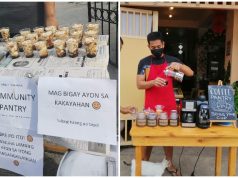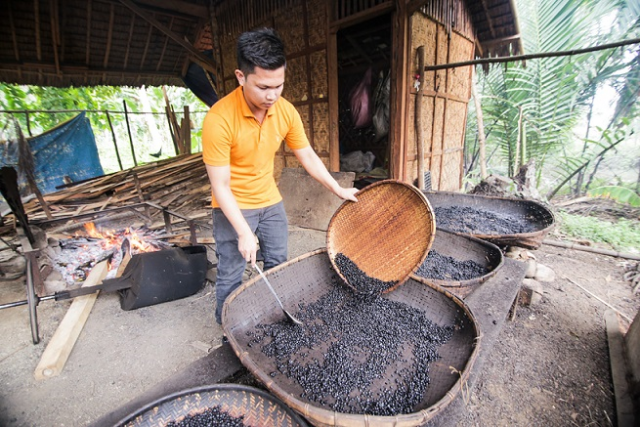
MANILA – For Kevin T. Pacatang, a mistake is not a setback but an opportunity to learn.
“There are trials and errors to go through,” he says, but they are not reasons to lose hope “because there are many chances (to correct those mistakes), avoid them next time and learn from them.”
Pacatang has learned so well from his mistakes that the way he has steered the family coffee and cacao business made him the first recipient of the Youth Microentrepreneur of the Year, which was added last year to the categories of the Citi Microentrepreneurship Awards (CMA) to honor a successful entrepreneur between the ages of 20 and 30. The new award aims to highlight best-in-class young entrepreneurs and their business initiatives. It complements Citi Foundation’s Pathways to Progress initiative that aims to create economic opportunities and social mobility for low-income youth.
The 14-year-old CMA, introduced by Citi Philippines, in partnership with the Bangko Sentral ng Pilipinas and Microfinance Council of the Philippines, Inc., is an annual nationwide search for the most outstanding micro business owners. It recognizes outstanding entrepreneurs with assets of P3 million or less, who have achieved remarkable growth as indicated by employment generation, profits and sales turnover, and have contributed to community development. Entrepreneurs should also have maintained healthy repayment records on loans, even as they build their savings.
Funded by Citi Foundation, CMA was launched in 2002 to celebrate Citi’s 100th year in the Philippines and in Asia. The award has since recognized more than 100 winners across the country.”
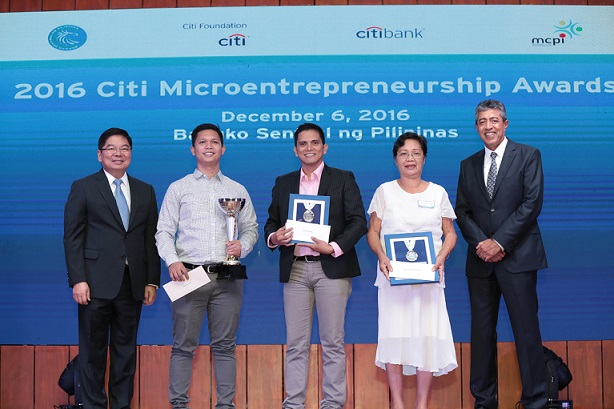
Early lessons in business
Pacatang of Jimenez, Misamis Occidental has been involved in the family business of tablea (chocolate) and native coffee processing for as long as he can remember. His mother would bring him along every time she went to the Jimenez Public Market to sell processed tablea and coffee. He also helped his mother process coffee and cocoa beans.
When he got older, Pacatang delivered processed products to his mother’s regular customers in the market or around the community. In 2011, while still in school, he started co-managing the business.
As co-manager, he focused on marketing. One of the first changes he introduced was to improve the packaging of their products. “I developed labels and packages . . . after learning of their importance” in seminars organized by the Department of Trade and Industry and other groups, he says.
Pacatang also bought a multicab for the delivery of their products to enhance the image of their enterprise. “Sosyal na ang delivery” (it gave class to our delivery), pointing out that he used to bring orders to customers on trolleys, push carts, bicycle or motorcycle. “With multicab, I was also able to go to other cities and municipalities,” he says. He now uses a car, too, for his delivery.
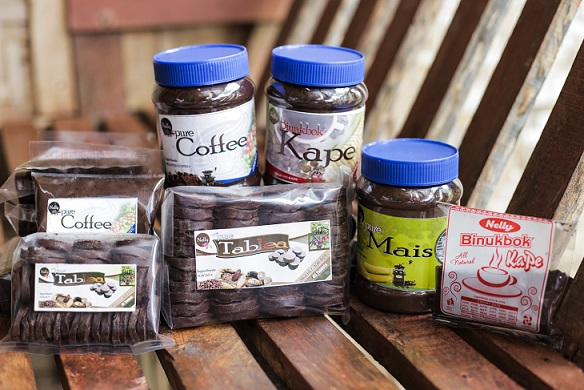
To increase the family business’ working capital, Pacatang joined the Paglaum Multipurpose Cooperative’s youth program because his mother was a member and he saw several benefits for members. His first loan was P5,000. When he became full manager of the business in 2014, he borrowed P200,000, which was also used to raise the enterprise’s capital.
All in the family
The business remains very much a family endeavor. Pacatang’s father oversees the roasting of the beans while his mother supervises production. Pacatang focuses on marketing.
When Pacatang started co-managing the business, it had only three workers. Now there are 10 employees, including himself and his parents. The other employees are their neighbors.
Tablea products are sold in small and big packs, with annual sales running to more than P2 million. Three types of coffee products are sold – corn coffee, pure native coffee and mixed coffee. Pacatang plows back as much as 80 percent of the profit into the business. The remaining 20 percent is used to pay the coop loan and to cover household expenses.
Pacatang buys his raw materials in bulk, as the price is lower, and supplies other tablea and coffee processors in Jimenez.
Knowing how important government recognition is in marketing their products, Pacatang has acquired the necessary permits from the Department of Trade and Industry, and Bureau of Internal Revenue and is in the process of acquiring a permit from the Food and Drug Administration. He says, in addition to introducing his products to more areas in his province and other parts of Mindanao, he wants to set up an online shopping site.
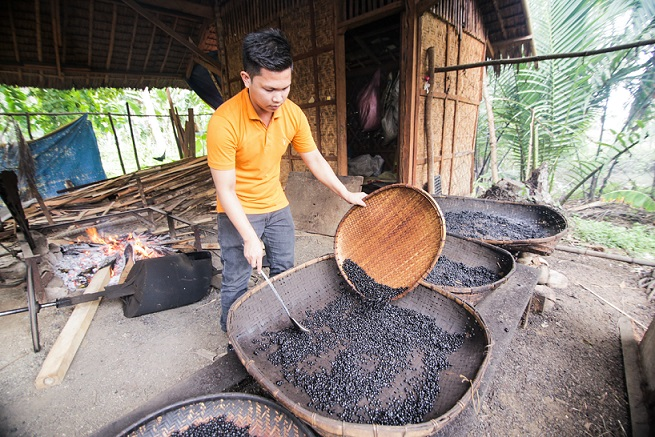
He is targeting bigger malls in Zamboanga del Norte, Zamboanga del Sur, Lanao del Norte and Misamis Oriental. He also wants his products carried by pasalubong sellers.
As part of his plan to grow his business, Pacatang regularly conducts product and price analysis to ensure that his prices are competitive. Attending seminars has helped him in benchmarking the quality of his products by comparing them to similar products in the market.
Pacatang also tries to be a model for his peers, spending his free time on sports and work of the Archdiocese Youth Ministry. Of course, his determination and perseverance to succeed, against all odds, are examples that will always be worth emulating by other young people like him.








